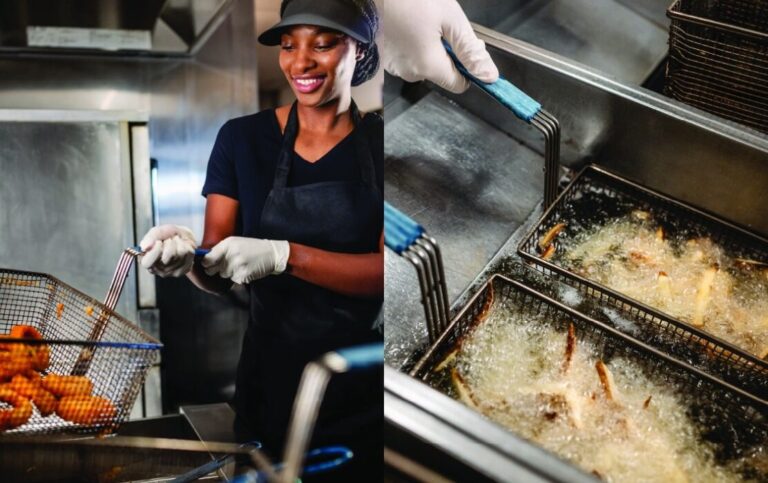Sponsored by Restaurant Technologies.
Unlocking hidden savings amid rising labor costs
As foodservice operating costs skyrocket nationwide, controlling business costs has become paramount to ensure profitability. The solution lies in finding savings that are often overlooked. We identified strategies to help foodservice operations succeed by automating cooking oil treatment and flue cleaning to reduce expenses like labor and insurance costs and increase efficiency in commercial kitchens.
Safety, labor efficiency, and employee retention
Managing hot cooking oil is one of the dirtiest and most dangerous jobs in the kitchen. Employees also consider it one of the most difficult jobs in a commercial kitchen. Filtering cooking oil is a tedious task, and mishandling hot cooking oil can lead to burns and slip and fall accidents.
Automated cooking oil management eliminates one of the dirtiest and most dangerous tasks in the foodservice industry, improving morale, creating a positive work environment and increasing staff retention.
“We had employees get burned by grease, and we had issues with grease splattering everywhere. There was grease all over the floor and it took forever to clean up. But that's not all. There were drums of grease outside and people had to come and collect it. It was a hassle,” says TJ Ahmed, owner of Spring Valley Jack LLC, a multi-brand franchise company that currently operates five Jack in the Box locations in Texas.
Restaurant Technologies' Total Oil Management® and AutoMist® solutions have received numerous industry awards for improving safety and efficiency, including the Buyer's Edge 2023 Labor Saving Solution of the Year award.
Claims and insurance cost containment
Automatic oil management reduces the risk of costly accidents such as burns or trips from spilled oil. Automatic hood and chimney systems keep hoods free of grease build-up and help reduce the risk of fire. The reduced risk from these systems also translates into lower insurance costs.
Saving oil and improving food quality
Automating oil changes ensures optimal usage by eliminating the guesswork and preventing wasteful early or late changes that can result in poor food quality. Customers report significant savings by maximizing oil life without compromising food quality.
“The fryer filtration monitoring system allows us to better monitor oil maintenance,” says Ringel. “Using the oil testing kits and dashboards provided by Restaurant Technologies, we can extend the life of our oil and improve the quality of our fried foods,” says Jeff Ringel, area manager for Apple American Group, the largest Applebee's franchise with more than 300 Applebee's Neighborhood Grill and Bar restaurants.
Increase customer satisfaction
Consistent oil quality means consistent tasting menu items, increased customer retention, and offsetting increased labor costs – your business, staff, and customers all benefit when you implement Total Oil Management and AutoMist.
For more information, visit rti-inc.com.


